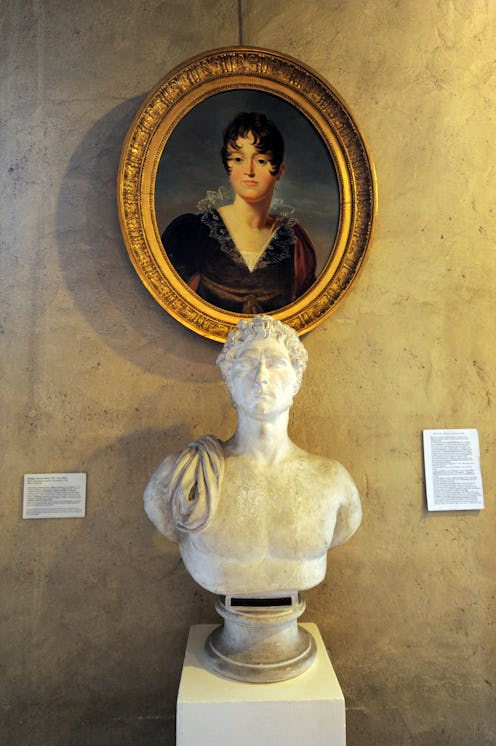Life
When Is History Ever Too "Female Focused"?
We live in a society where spending any significant time talking about women is considered a surprising thing. That's why it's completely unsurprising that a history podcast is often accused of being too "female focused." It's kind of a head-scratching accusation, both because the podcast is called Stuff You Missed in History Class (which presumably would involve a disproportionate number of women, given how male-dominated most history classes are — the point of the podcast is to cover stuff your history class didn't, after all), and also because the creators ran the numbers and found that they still do more stories that focus on men than women.
"Let me start by saying just how fed up we are of getting basically this exact same email (which we also get in the form of tweets and Facebook comments, and one-star reviews that we 'only' talk about women)," Tracy V. Wilson wrote in a blog post about an email that suggested the podcast rename itself "stuff you missed in history class mostly about women."
Wilson explains that the current team and their predecessors at the podcast have largely just ignored these sorts of comments; after all, they don't think they're covering a disproportionate number of women and wouldn't be particularly bothered if they were. But since it's such a never-ending complaint, they decided to run the numbers.
They divided the podcast episodes into five categories: stories about individual men or groups of men; stories about individual women or groups of women; events predominately involving men; events predominately involving women; and ungendered episodes. They found that the largest single category was ungendered episodes — 117 out of 341 so far in 2016 — but that episodes about men, groups of men, or events primarily involving men outnumbered their female-focused counterparts by two to one.
Overall, so far this year, 45 percent of episodes focused on men; meanwhile, 21 percent have focused on women. And that's roughly the same pattern that's held true for the previous years as well.
But yeah, the podcast is definitely dominated by stories about women... right?
As strange as it might seem, this complaint is actually unsurprising when you consider the context it's in: our society. We live in a culture which has, for hundreds of years — and still to this day — continually tried to minimize women. This manifests in all sorts of little ways, like the fact that women only make up an average of 17 percent of crowd scenes in movies, or the utter lack of statues and monuments commemorating women in history, but also in big ways as well.
For instance, despite the fact that women don't speak more than men, people still not only hold to that stereotype but perceive women to be dominating a conversation if women speak for an equal amount of time. Because we are conditioned not to want to give women an equal voice in society.
And thus, it isn't surprising that a history podcast that gives women a more equal — though still not perfectly equal — share of attention in history would be perceived as "female-dominated." It's because we aren't used to women making up more than 17 percent of a crowd; we aren't used to women being honored for achievement or historical contribution; and we certainly aren't used to women being given equal weight in the discussion.
But we should be. And maybe, with things like podcasts that fill in some of the blanks our history classes leave behind, someday, we will be.
Image: Giphy
